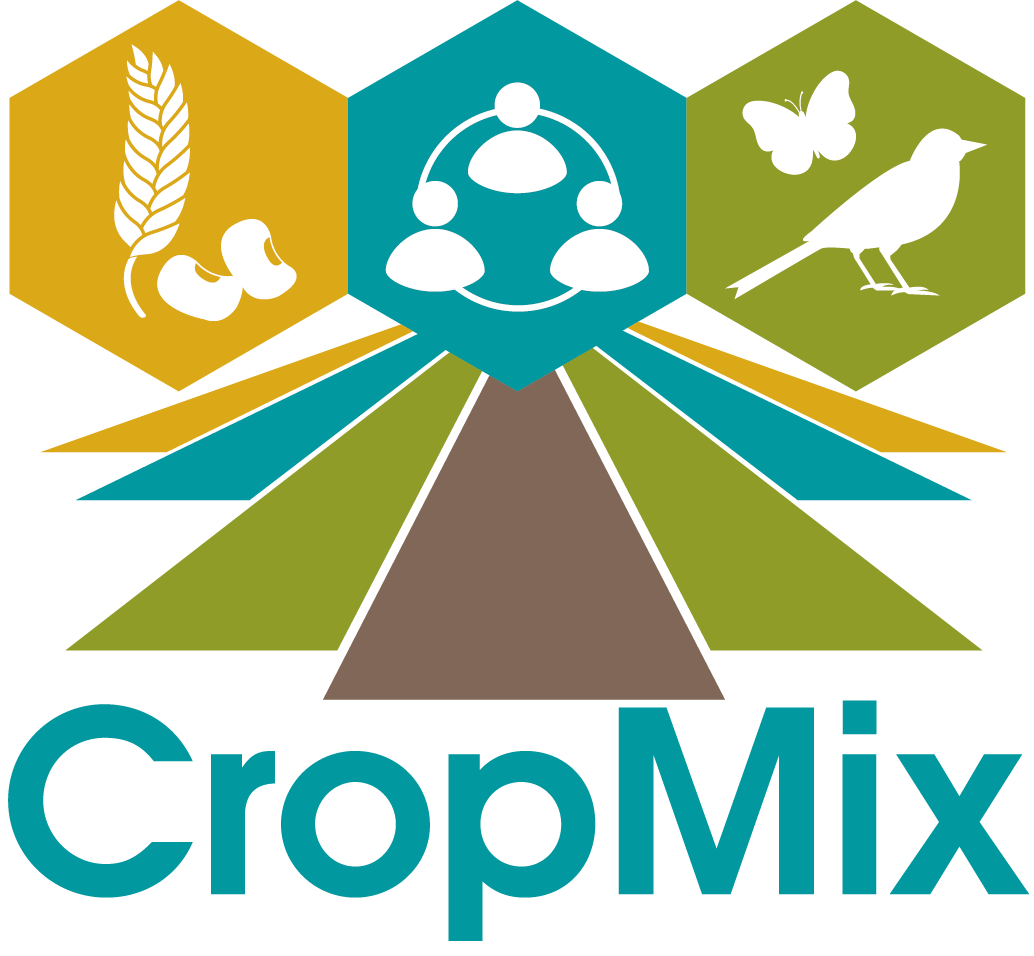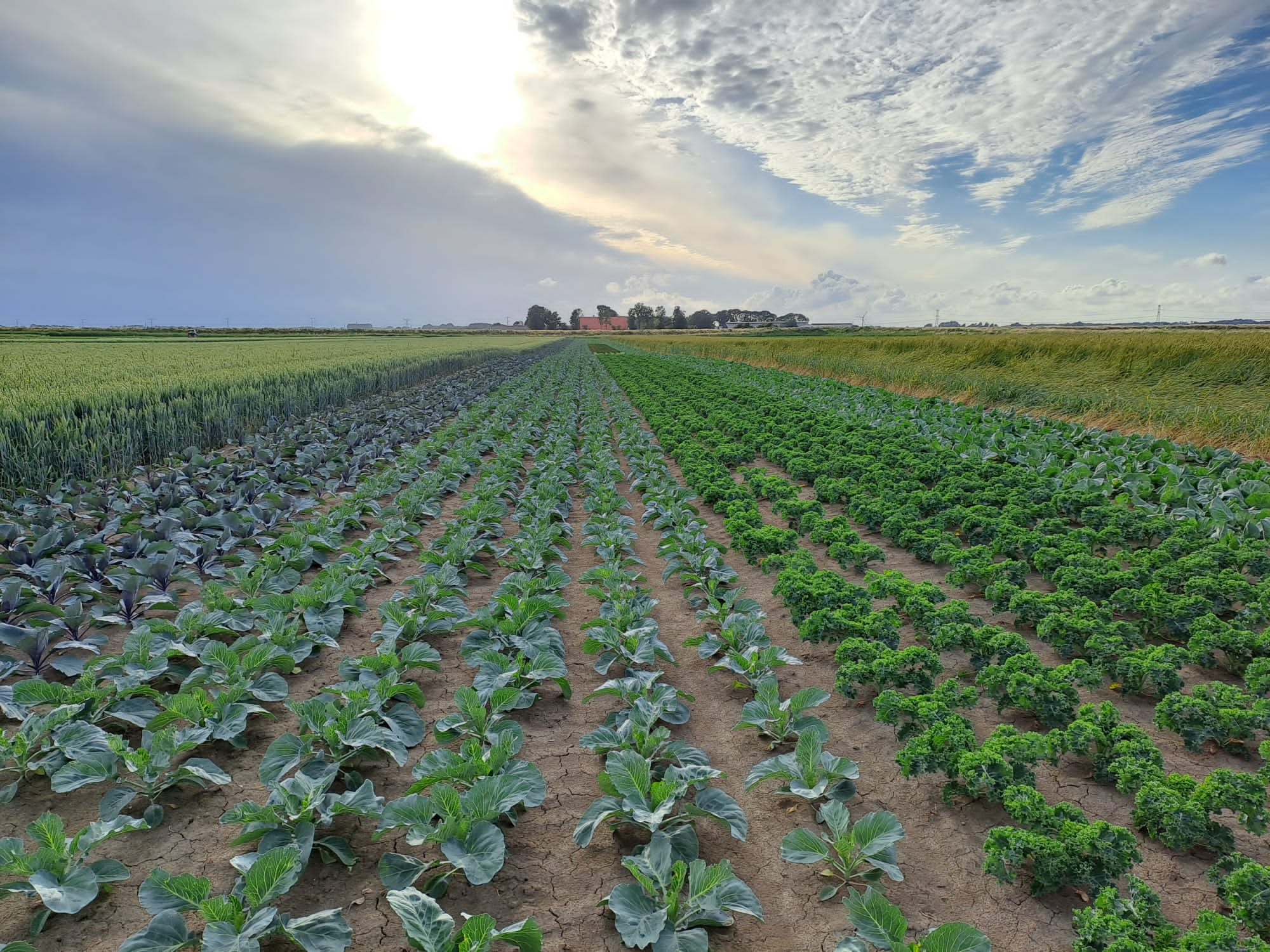What is the problem?
The Dutch agricultural sector faces major challenges, including serious loss of biodiversity, waste of resources, dependence on environmentally unfriendly inputs (e.g. pesticides), risks to human health from pesticide use and climate change. Biodiversity is threatened on a large scale, including the most diverse animal group, namely insects. Moreover, farmers' economic position is often fragile, while the general public demands both affordable food and a clean environment with high biodiversity. The EU ban on environmentally harmful neonicotinoid insecticides requires significant changes in agricultural practices. There is thus an urgent need for a transition to environmentally friendly agri-food systems based on the economic strength of cooperation between parties in the agricultural sector and support and trust from civil society organisations (Vision Report Ministry of Agriculture, Nature and Food Quality).
Objectives
CropMix aims to drive the transition to robust agro-food production ecosystems, in which biodiversity and resilience are the starting point for coping with external threats.
The transition to ecology-based agriculture requires simultaneous changes in 'hardware' (biology, technology), 'software' (knowledge, values and ideas) and 'orgware' (organisation, rules, incentives). CropMix integrates these dimensions by addressing questions about all three components of innovation and through a transdisciplinary approach. It is important to involve not only scientists, but also precisely stakeholders, such as farmers, consumers and chain partners, and to firmly anchor the research in society.
Scientific research
We will gather knowledge needed to drive the transition to ecology-based agriculture over the next few years through 22 projects (20 PhDs and 2 postdocs) divided into three work packages. The work packages are:
Below is a list of individual research projects of our PhD candidates by work package.
Work package 1 | Agro-ecology
- Soilborne pathogens and microbial interactions
- Soil food web and nutrient cycling
- Modelling key belowground ecological processes in crop mixtures
- Sustainable weed suppression
- Resistance to herbivores and pathogens
- Effects of plant diversity on biocontrol
- Optimising microclimate-informed intercropping systems
- Scaling plant-plant to field
- Yields in strip cropping
- Insect biodiversity (postdoc not started yet)
- The value of strip cropping for farmland birds
- Biodiversity and ecosystem services within circular food systems
Work package 2 | Socio-economics, technology, and logistics
- Economic analysis of mixed cropping systems in Dutch agriculture
- Farmers' willingness to adopt mixed cropping
- Sustainable production planning and field logistics
- Designing agricultural landscapes and the role of strip cropping
- Efficient distribution networks
- Technological readiness for mixed cropping
- Connecting ecology, economy and technology in value chains
Work package 3 | Institutional change

Figure: Overview of the 22 individual projects within CropMix, distributed across the three work packages.
Societal impact
The overall social impact we aim to achieve with our programme is for the agricultural sector to move towards sustainable, ecology-based production systems that greatly reduce the negative impacts of current conventional cropping systems. This includes making agro-ecosystems less vulnerable to environmental conditions such as extreme weather events (drought or heavy rainfall), loss of productivity due to deterioration of soil health, contamination of soil and water with pesticides and fertilisers causing health risks, and loss of biodiversity, including loss of ecosystem services such as pollination and control of pests, pathogens and weeds.
The impact we aim to achieve through our research consists of
- To provide in-depth knowledge of processes in agro-ecosystems that make mixed cropping systems resilient to pest, pathogen and weed outbreaks, environmental disturbances, and improve nutrient use efficiency and biodiversity. Work with farmers and farmer collectives to develop crop mixtures and combinations that are profitable and can transform current cropping systems.
- Obtaining hard data to support the use of new success indicators for product prices and production chains. By identifying how biodiversity recovers and at what rate different agricultural practices affect recovery, we achieve that this success indicator can be effectively implemented in the value chain as a means of encouraging sustainable crop production.
- Promoting a diversity of value chains, each taking their steps in sustainable production. By exploring how new business models based on short or longer value chains, implement logistical and technological challenges, include public and/or private financing of ecosystem services and can be connected to different consumers. We want to offer variety in transition paths to sustainable production.
- Increasing the scalability of sustainable ecology-based production systems by creating public awareness and institutional readiness in transitions to ecology-based production systems.
Thesis opportunities
Are you looking for a thesis project at undergraduate or graduate level? See the button below for the projects we have available.


